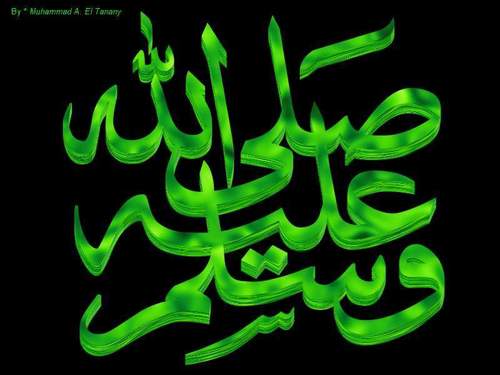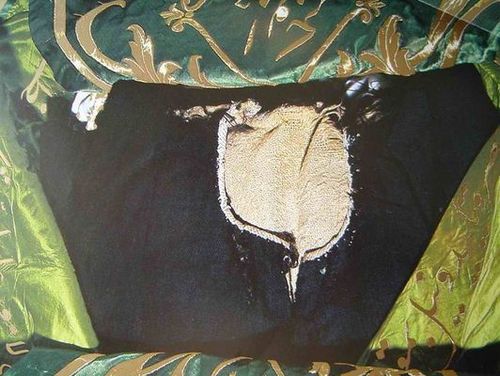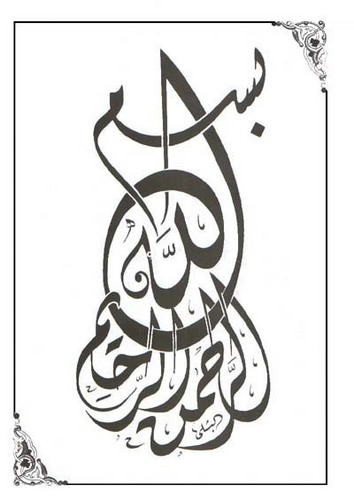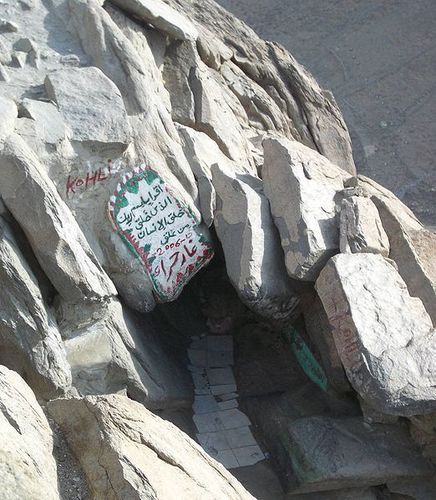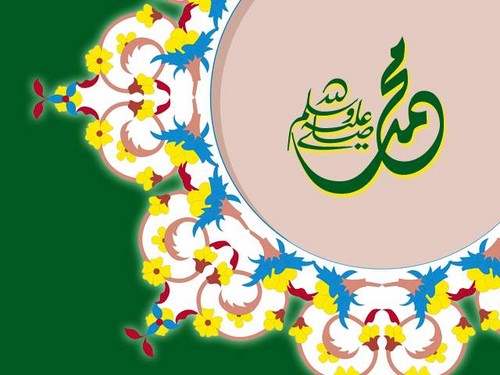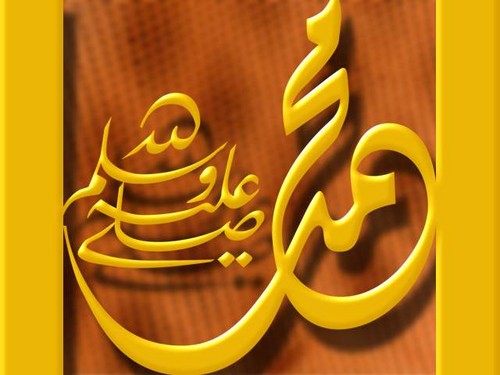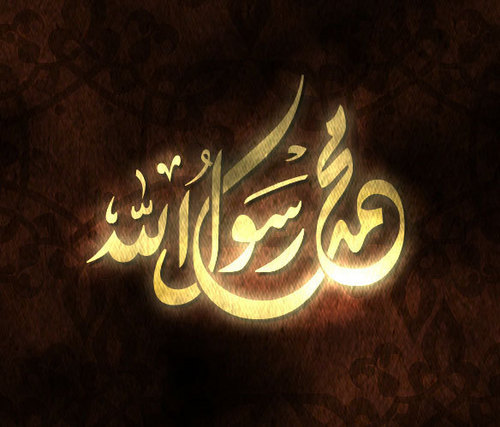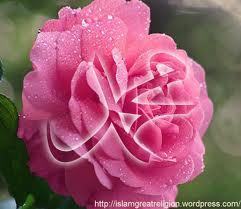In administering justice and applying the enjoinments of Allaah The Almighty, he, sallallaahu alayhi wa sallam, made no distinction between relatives and strangers, believers and nonbelievers, 老友记 and foes, and mean and noble people. He was the ideal example in the issue of justice, and there can be no wonder for he was the Messenger of Allaah, sallallaahu ‘alayhi wa sallam, who conveyed the Message of his Lord and Master The Almighty.
The sublime trait of justice was a deeply-rooted trait in the character of the Messenger of Allaah, sallallaahu ‘alayhi wa sallam; 或者 rather, it was an innate instinct that never left him. In fact, he was even famous for his justice before his Lord honored him with prophethood. Then how would he have been after he received that honor from his Lord?
He witnessed along with his uncles, while he was at a tender age, the Hilf Al-Fudhool (Alliance of the Virtuous) held 由 the Quraysh to restrain the wrongdoer and support the one who was wronged, about which the Prophet, sallallaahu ‘alayhi wa sallam, 说 after he had received prophethood: “In the house of ‘Abdullaah ibn Jud‘aan I was present at an alliance which was such that if I was invited to take part in it now, in Islam, I would still do so: The Quraysh pledged to restore to everyone what was their due and not to allow any aggressor to get the better of those he had wronged.” [Al-Bayhaqi; Al-Albaani: Saheeh (Authentic)]
2 Who fabricated the lie and accusations against ‘Aa’ishah, the wife of the Prophet, sallallaahu ‘alayhi wa sallam, and whispered
it among people. [Al-Bukhaari]
In the story of the rebuilding the Ka‘bah when strife broke out among the chiefs of the Qurayshi tribes, each contesting for the honor of placing the Black Stone in its position, people said, “Appoint the first man to enter the House from its entrance to be a mediator between us." The Messenger of Allaah, sallallaahu ‘alayhi wa sallam, was the first to enter the House and he had not yet received the Message at that time. All the people there accepted him as an arbitrator for they knew well that he was trustworthy, intelligent and impartial. He settled the dispute rightly
and no tribe was denied anything. [Ahmad; Al-Albaani: Hasan]
In administering justice, the Prophet, sallallaahu ‘alayhi wa sallam, made no distinction between his relatives and strangers, 或者 老友记 and foes. Before him all people were equal. In the story of the Makhzoomiyyah lady who committed theft, when Usaamah, who was the 最喜爱的 of the Messenger of Allaah, interceded with the Messenger of Allaah, sallallaahu ‘alayhi wa sallam, on the lady’s behalf, the face of the Messenger of Allaah, sallallaahu ‘alayhi wa sallam, changed color because of extreme anger and he said: "Are 你 interceding (with me) to violate one of the legal punishments of Allaah?" Usaamah, may Allaah be pleased with him, 说 to him, "Ask Allaah to forgive me, O Messenger of Allaah!'' That night, the Messenger of Allaah, sallallaahu ‘alayhi wa sallam, stood up and gave a speech and praised Allaah as He deserves to be praised, then said: "O people, the nations before 你 went astray because if a noble person committed theft, they would leave him alone, but if a weak person among them committed theft, they used to inflict the legal punishment on him. 由 Him in whose hand my soul is, if Faatimah the daughter of Muhammad stole, I would have her hand cut off.”
[Al- Bukhaari and Muslim]
This great oath to carry out the prescribed punishment, even, if for his own daughter who is a part of him if she did what entails punishment, and far was she from doing that and Allaah The Almighty guarded her from such things, this powerful oath indicates the ultimate determination and resolution of the Prophet, sallallaahu ‘alayhi wa sallam, to establish justice among all people, even if they be his relatives.
Thus, the Prophet, sallallaahu ‘alayhi wa sallam, was extremely angry when the rough Bedouin named Thu’l Khuwaysirah came to him while he was distributing some property and said, "O Messenger of Allaah, do justice." The Prophet, sallallaahu ‘alayhi wa sallam, said, "Woe to you! Who would do justice if I did not? 你 would be a desperate loser if I did not do justice."
[Al-Bukhaari and Muslim] An-Nawawi, may Allaah have mercy upon him, said, ““You would be a desperate loser” means that “you, O follower, would be a loser if I did not do justice because 你 would be following someone who is not just.”
The manifestations of the noble justice and impartiality of the Prophet, sallallaahu ‘alayhi wa sallam, were clearly demonstrated in his relationship with his Lord, himself and other creatures.
His justice with his Lord was demonstrated in its best form, for he preferred to fulfill the rights of his Lord The Almighty over his own rights:
He established supererogatory prayers at night until his feet became swollen. He preferred the pleasure of his Lord to his own pleasure. He might have desired something very much but was not permitted to do it, so he never went beyond the prescribed limits. For example, he performed prayers in the direction of Al-Masjid Al-Aqsa (in Jerusalem) until his Lord The Almighty honored him with what pleased him.
As for administering justice with himself, he treated himself with the utmost justice. He did not give reign to his self to fulfill what he desired. He never denied his soul anything that could purify it. In fact, he adopted, as it was known of his guidance, the middle way of life and never went to extremes of poverty and wealth. This was the consequence of his perfect justice with himself, giving it its due right that he approved: “Your Lord has a right on you; and your soul has a right on you; and your family has a right on you; so 你 should give rights where they are due.” [Al-Bukhaari]
As for administering justice with all creatures, he, sallallaahu ‘alayhi wa sallam, did this correctly and appropriately with his family, companions and soldiers despite his great and noble status.
Among the examples of such justice are:
It was narrated 由 Usayd ibn Hudhayr, may Allaah be pleased with him, who was a man of the Ansaar, that while he was 给 to jesting and was talking to the people and making them laugh, the Prophet, sallallaahu ‘alayhi wa sallam, poked him under the ribs with a stick. He said, “Let me take retaliation.” He, sallallaahu ‘alayhi wa sallam, said: “Take retaliation.” He said, “You are wearing a 衬衫 but I am not.” The Prophet, sallallaahu ‘alayhi wa sallam, raised his 衬衫 and the man embraced him and began to 吻乐队(Kiss) his side, and then said, “This is what I wanted, O Messenger of Allaah!” [Abu Daawood; Al-Albaani: Saheeh (Authentic)]
Another wonderful example in this connection is that while the Messenger of Allaah, sallallaahu ‘alayhi wa sallam, was straightening the ranks of his companions on the 日 of Badr and walking in front of the ranks with a piece of wood in his hand, he saw a man named Sawaad ibn Ghaziyyah, may Allaah be pleased with him, sticking out of the rank. He, sallallaahu ‘alayhi wa sallam, 说 to him: “O Sawaad, straighten yourself!” and pushed him back on his chest with the piece of wood that he had in his hand. Sawaad said, “You have hurt me and Allaah sent 你 with the truth and justice, O Messenger of Allaah, allow me retaliation!” The Messenger of Allaah, sallallaahu ‘alayhi wa sallam, uncovered his abdomen and said: “Go ahead!” Sawaad jumped and hugged the Messenger of Allaah, sallallaahu ‘alayhi wa sallam, and kissed his abdomen. The Messenger of Allaah, sallallaahu ‘alayhi wa sallam, asked him: “Why did 你 do that Sawaad?” He said, “Combat is near so I wanted the last thing I do with 你 be that my skin touch your skin.” The Prophet, sallallaahu ‘alayhi wa sallam, then invoked Allaah for him.” [Ibn Is-haaq; Al-Albaani: Hasan]
Contemplate this, despite the perfect justice of the Prophet, sallallaahu ‘alayhi wa sallam, he would invoke his Lord, saying: “O Allaah, indeed Muhammad is a human being who gets angry like other human beings. I have held a covenant with 你 which 你 will never break, if I should ever abuse 或者 curse 或者 lash a believer, Make that an expiation for him and let that be a means of bringing him near to 你 on the 日 of Judgment.” [Al-Bukhaari and Muslim]
Such was the justice and impartiality of the Prophet, sallallaahu ‘alayhi wa sallam, with his Ummah despite his noble and great status and this was solely for realizing perfect justice and equality among all.
In fact, the personal life of the Prophet, sallallaahu ‘alayhi wa sallam, was an ideal example of human justice. Justice pervaded all his affairs even when he, sallallaahu ‘alayhi wa sallam, was on his deathbed. Let my father, mother, my self and my son be sacrificed for you, O Messenger of Allaah!
It was narrated that ‘Aa’ishah, may Allaah be pleased with her, said, “The Messenger of Allaah, sallallaahu ‘alayhi wa sallam, did not favor any one of us over another with regard to division of his time and how long he stayed with us, and there was rarely a 日 when he did not go around to all of us, and he would draw close to each wife without having intercourse until he reached the one whose 日 it was, then he would stay overnight with her.” [Abu Daawood; Al-Albaani: Hasan]
It was also narrated that ‘Aa’ishah, may Allaah be pleased with her, said, “Whenever the Messenger of Allaah wanted to go on a journey, he would draw lots as to which of his wives would accompany him. He would take her whose name came out. He would fix for each of them a 日 and a night.” [Al-Bukhaari and Muslim]
Even when the sickness of the Prophet, sallallaahu ‘alayhi wa sallam, became severe, he was keen on being fair and just with his wives and endured the hardships and pains of moving to each one’s house until they permitted him to stay at the house of ‘Aa’ishah, may Allaah be pleased with her:
It was narrated that ‘Aa’ishah, may Allaah be pleased with her, said, “When the ailment of the Prophet, sallallaahu ‘alayhi wa sallam, was aggravated and his illness intensified, he asked his wives to permit him to be nursed in my room. So they gave him permission. Then, the Prophet, sallallaahu ‘alayhi wa sallam, came (to my house) with the support of two men, and his legs were dragging on the ground...” [Al-Bukhaari and Muslim]
The Prophet, sallallaahu ‘alayhi wa sallam, was just and fair with his wives and endured the acts of jealousy that were shown 由 some of them such as ‘Aa’ishah, may Allaah be pleased with her, who was a jealous woman. It was narrated that Anas, may Allaah be pleased with him, said, “Once, one of the Mothers of the Believers sent 食物 on a plate. ‘Aa’ishah, may Allaah be pleased with her, struck the plate with her hand, making it fall and break. The Prophet, sallallaahu ‘alayhi wa sallam, said: ‘Food for food, and a plate for a plate.’” [At-Tirmithi; Al- Albaani: Saheeh (Authentic)] Then the Prophet, sallallaahu ‘alayhi wa sallam, gathered the broken pieces of the plate and collected the 食物 on them and detained the servant until a (sound) plate was brought from the wife at whose house he was. He sent the sound plate to the wife whose plate had been broken and kept the broken one at the house where it had been broken.
[Al-Bukhaari]
Another aspect of the justice of the Prophet, sallallaahu ‘alayhi wa sallam, was manifest in the way he would soothe the anger of his wife who was treated wrongly and advise the other and remind her about Allaah The Almighty as he did with Hafsah and Safiyyah, may Allaah be pleased with them, when Safiyyah was informed that Hafsah had called her, the daughter of a Jew an therefore started to cry. The Prophet, sallallaahu ‘alayhi wa sallam, then came in and asked her: “Why are 你 crying?” She said, “Hafsah called me the daughter of a Jew.” To this the Prophet, sallallaahu ‘alayhi wa sallam, replied: “Indeed 你 are the daughter of a Prophet, your uncle was also a Prophet, and 你 are the wife of a Prophet, so what does she have over 你 to boast about?” He then turned to Hafsah and said: “Fear Allaah, O Hafsah.” [Ahmad and At-Tirmithi; Al-Albaani: Saheeh (Authentic)]
Just as the Prophet, sallallaahu ‘alayhi wa sallam, observed justice in all his affairs, he would also his companions to observe justice and guide them to everything that would help them
achieve it. He would advise whoever assumed the post of a ruler 或者 judge saying: “When two litigants sit in front of you, do not decide until 你 hear what the other has to say just as 你 hear what the first has had to say; for it is best that 你 should have a clear idea of the best decision.”
[Abu Daawood, At-Tirmithi and Ahmad; Al-Albaani: Saheeh (Authentic)]
The Prophet, sallallaahu ‘alayhi wa sallam, never denied anyone the right to defend himself to guarantee justice. In this connection he, sallallaahu ‘alayhi wa sallam, said: “…As the creditor (i.e. owner of a right) has the right to speak…” [Al-Bukhaari and Muslim]
This unprecedented justice was not confined to Muslims only but it also extended to non- Muslims. The Prophet, sallallaahu ‘alayhi wa sallam, enacted what would protect the lives, honor and souls of the non-Muslims and secure justice for them. In this regard, the Prophet, sallallaahu ‘alayhi wa sallam, warned against denying non-Muslims their rights and made himself an enemy of those who attack them, saying: “If anyone wrongs a Thimmi (a non- Muslim living in a Muslim country), 或者 diminishes his right, 或者 forces him to work beyond his capacity, 或者 takes from him anything without his consent, I shall plead on his behalf on the 日 of Judgment.” [Abu Daawood; Al-Albaani: Saheeh (Authentic)]
It was narrated that Ibn Abi Hadrad Al-Aslami, may Allaah be pleased with him, owed a Jew four Dirhams and he did not give them back to him. So he (the Jewish man) said, “O Muhammad, this man owes me four Dirhams and has not repaid me.” The Prophet, sallallaahu ‘alayhi wa sallam, said: “Give him his due money.” Ibn Abi Hadrad said, 由 the One who sent 你 with truth, I cannot.” The Prophet, sallallaahu ‘alayhi wa sallam, again said: “Give him his due money.” Ibn Abi Hadrad again said, “By the One who sent 你 with the truth, I cannot and I have told him that 你 will send us to Khaybar and I hope to have something (in booty) with which I can pay back his money.” The Prophet, sallallaahu ‘alayhi wa sallam, again said: “Give him his due money.” And if the Prophet, sallallaahu ‘alayhi wa sallam, 说 something thrice, he was not to be answered back. Upon that Ibn Abi Hadrad took him and went to the market and he had a turban over his head and a Burdah (cloak). He took off his turban and put it around his waist and took off his Burdah and said, “Buy this Burdah from me.” So he bought it from him for the four Dirhams. [Ahmad; Al-Albaani: Saheeh (Authentic)]
Among the amazing examples in this respect is what happened with the Ansaar in Khaybar when ‘Abdullaah ibn Sahl Al-Ansaari, may Allaah be pleased with him, was murdered in the land of the Jews. There was a great possibility that the murderer was from the Jews, but there was no solid evidence of that and so the Prophet, sallallaahu ‘alayhi wa sallam, did not punish the Jews at all. He only ordered them to take oath that they did not commit that murder.
Then, the Messenger of Allaah, sallallaahu ‘alayhi wa sallam, did an amazing thing, he himself paid the blood money from the money of the Muslims to appease the Ansaar without doing injustice to the Jews. The Islamic State bore that burden in order to not not apply the prescribed legal punishment on a Jew without solid evidence. [Al-Bukhaari and Muslim]
Allaah The Almighty, the Most Truthful Says (what means) describing him: {And indeed, 你 are of a great moral character.} [Quran 68:4]
The sublime trait of justice was a deeply-rooted trait in the character of the Messenger of Allaah, sallallaahu ‘alayhi wa sallam; 或者 rather, it was an innate instinct that never left him. In fact, he was even famous for his justice before his Lord honored him with prophethood. Then how would he have been after he received that honor from his Lord?
He witnessed along with his uncles, while he was at a tender age, the Hilf Al-Fudhool (Alliance of the Virtuous) held 由 the Quraysh to restrain the wrongdoer and support the one who was wronged, about which the Prophet, sallallaahu ‘alayhi wa sallam, 说 after he had received prophethood: “In the house of ‘Abdullaah ibn Jud‘aan I was present at an alliance which was such that if I was invited to take part in it now, in Islam, I would still do so: The Quraysh pledged to restore to everyone what was their due and not to allow any aggressor to get the better of those he had wronged.” [Al-Bayhaqi; Al-Albaani: Saheeh (Authentic)]
2 Who fabricated the lie and accusations against ‘Aa’ishah, the wife of the Prophet, sallallaahu ‘alayhi wa sallam, and whispered
it among people. [Al-Bukhaari]
In the story of the rebuilding the Ka‘bah when strife broke out among the chiefs of the Qurayshi tribes, each contesting for the honor of placing the Black Stone in its position, people said, “Appoint the first man to enter the House from its entrance to be a mediator between us." The Messenger of Allaah, sallallaahu ‘alayhi wa sallam, was the first to enter the House and he had not yet received the Message at that time. All the people there accepted him as an arbitrator for they knew well that he was trustworthy, intelligent and impartial. He settled the dispute rightly
and no tribe was denied anything. [Ahmad; Al-Albaani: Hasan]
In administering justice, the Prophet, sallallaahu ‘alayhi wa sallam, made no distinction between his relatives and strangers, 或者 老友记 and foes. Before him all people were equal. In the story of the Makhzoomiyyah lady who committed theft, when Usaamah, who was the 最喜爱的 of the Messenger of Allaah, interceded with the Messenger of Allaah, sallallaahu ‘alayhi wa sallam, on the lady’s behalf, the face of the Messenger of Allaah, sallallaahu ‘alayhi wa sallam, changed color because of extreme anger and he said: "Are 你 interceding (with me) to violate one of the legal punishments of Allaah?" Usaamah, may Allaah be pleased with him, 说 to him, "Ask Allaah to forgive me, O Messenger of Allaah!'' That night, the Messenger of Allaah, sallallaahu ‘alayhi wa sallam, stood up and gave a speech and praised Allaah as He deserves to be praised, then said: "O people, the nations before 你 went astray because if a noble person committed theft, they would leave him alone, but if a weak person among them committed theft, they used to inflict the legal punishment on him. 由 Him in whose hand my soul is, if Faatimah the daughter of Muhammad stole, I would have her hand cut off.”
[Al- Bukhaari and Muslim]
This great oath to carry out the prescribed punishment, even, if for his own daughter who is a part of him if she did what entails punishment, and far was she from doing that and Allaah The Almighty guarded her from such things, this powerful oath indicates the ultimate determination and resolution of the Prophet, sallallaahu ‘alayhi wa sallam, to establish justice among all people, even if they be his relatives.
Thus, the Prophet, sallallaahu ‘alayhi wa sallam, was extremely angry when the rough Bedouin named Thu’l Khuwaysirah came to him while he was distributing some property and said, "O Messenger of Allaah, do justice." The Prophet, sallallaahu ‘alayhi wa sallam, said, "Woe to you! Who would do justice if I did not? 你 would be a desperate loser if I did not do justice."
[Al-Bukhaari and Muslim] An-Nawawi, may Allaah have mercy upon him, said, ““You would be a desperate loser” means that “you, O follower, would be a loser if I did not do justice because 你 would be following someone who is not just.”
The manifestations of the noble justice and impartiality of the Prophet, sallallaahu ‘alayhi wa sallam, were clearly demonstrated in his relationship with his Lord, himself and other creatures.
His justice with his Lord was demonstrated in its best form, for he preferred to fulfill the rights of his Lord The Almighty over his own rights:
He established supererogatory prayers at night until his feet became swollen. He preferred the pleasure of his Lord to his own pleasure. He might have desired something very much but was not permitted to do it, so he never went beyond the prescribed limits. For example, he performed prayers in the direction of Al-Masjid Al-Aqsa (in Jerusalem) until his Lord The Almighty honored him with what pleased him.
As for administering justice with himself, he treated himself with the utmost justice. He did not give reign to his self to fulfill what he desired. He never denied his soul anything that could purify it. In fact, he adopted, as it was known of his guidance, the middle way of life and never went to extremes of poverty and wealth. This was the consequence of his perfect justice with himself, giving it its due right that he approved: “Your Lord has a right on you; and your soul has a right on you; and your family has a right on you; so 你 should give rights where they are due.” [Al-Bukhaari]
As for administering justice with all creatures, he, sallallaahu ‘alayhi wa sallam, did this correctly and appropriately with his family, companions and soldiers despite his great and noble status.
Among the examples of such justice are:
It was narrated 由 Usayd ibn Hudhayr, may Allaah be pleased with him, who was a man of the Ansaar, that while he was 给 to jesting and was talking to the people and making them laugh, the Prophet, sallallaahu ‘alayhi wa sallam, poked him under the ribs with a stick. He said, “Let me take retaliation.” He, sallallaahu ‘alayhi wa sallam, said: “Take retaliation.” He said, “You are wearing a 衬衫 but I am not.” The Prophet, sallallaahu ‘alayhi wa sallam, raised his 衬衫 and the man embraced him and began to 吻乐队(Kiss) his side, and then said, “This is what I wanted, O Messenger of Allaah!” [Abu Daawood; Al-Albaani: Saheeh (Authentic)]
Another wonderful example in this connection is that while the Messenger of Allaah, sallallaahu ‘alayhi wa sallam, was straightening the ranks of his companions on the 日 of Badr and walking in front of the ranks with a piece of wood in his hand, he saw a man named Sawaad ibn Ghaziyyah, may Allaah be pleased with him, sticking out of the rank. He, sallallaahu ‘alayhi wa sallam, 说 to him: “O Sawaad, straighten yourself!” and pushed him back on his chest with the piece of wood that he had in his hand. Sawaad said, “You have hurt me and Allaah sent 你 with the truth and justice, O Messenger of Allaah, allow me retaliation!” The Messenger of Allaah, sallallaahu ‘alayhi wa sallam, uncovered his abdomen and said: “Go ahead!” Sawaad jumped and hugged the Messenger of Allaah, sallallaahu ‘alayhi wa sallam, and kissed his abdomen. The Messenger of Allaah, sallallaahu ‘alayhi wa sallam, asked him: “Why did 你 do that Sawaad?” He said, “Combat is near so I wanted the last thing I do with 你 be that my skin touch your skin.” The Prophet, sallallaahu ‘alayhi wa sallam, then invoked Allaah for him.” [Ibn Is-haaq; Al-Albaani: Hasan]
Contemplate this, despite the perfect justice of the Prophet, sallallaahu ‘alayhi wa sallam, he would invoke his Lord, saying: “O Allaah, indeed Muhammad is a human being who gets angry like other human beings. I have held a covenant with 你 which 你 will never break, if I should ever abuse 或者 curse 或者 lash a believer, Make that an expiation for him and let that be a means of bringing him near to 你 on the 日 of Judgment.” [Al-Bukhaari and Muslim]
Such was the justice and impartiality of the Prophet, sallallaahu ‘alayhi wa sallam, with his Ummah despite his noble and great status and this was solely for realizing perfect justice and equality among all.
In fact, the personal life of the Prophet, sallallaahu ‘alayhi wa sallam, was an ideal example of human justice. Justice pervaded all his affairs even when he, sallallaahu ‘alayhi wa sallam, was on his deathbed. Let my father, mother, my self and my son be sacrificed for you, O Messenger of Allaah!
It was narrated that ‘Aa’ishah, may Allaah be pleased with her, said, “The Messenger of Allaah, sallallaahu ‘alayhi wa sallam, did not favor any one of us over another with regard to division of his time and how long he stayed with us, and there was rarely a 日 when he did not go around to all of us, and he would draw close to each wife without having intercourse until he reached the one whose 日 it was, then he would stay overnight with her.” [Abu Daawood; Al-Albaani: Hasan]
It was also narrated that ‘Aa’ishah, may Allaah be pleased with her, said, “Whenever the Messenger of Allaah wanted to go on a journey, he would draw lots as to which of his wives would accompany him. He would take her whose name came out. He would fix for each of them a 日 and a night.” [Al-Bukhaari and Muslim]
Even when the sickness of the Prophet, sallallaahu ‘alayhi wa sallam, became severe, he was keen on being fair and just with his wives and endured the hardships and pains of moving to each one’s house until they permitted him to stay at the house of ‘Aa’ishah, may Allaah be pleased with her:
It was narrated that ‘Aa’ishah, may Allaah be pleased with her, said, “When the ailment of the Prophet, sallallaahu ‘alayhi wa sallam, was aggravated and his illness intensified, he asked his wives to permit him to be nursed in my room. So they gave him permission. Then, the Prophet, sallallaahu ‘alayhi wa sallam, came (to my house) with the support of two men, and his legs were dragging on the ground...” [Al-Bukhaari and Muslim]
The Prophet, sallallaahu ‘alayhi wa sallam, was just and fair with his wives and endured the acts of jealousy that were shown 由 some of them such as ‘Aa’ishah, may Allaah be pleased with her, who was a jealous woman. It was narrated that Anas, may Allaah be pleased with him, said, “Once, one of the Mothers of the Believers sent 食物 on a plate. ‘Aa’ishah, may Allaah be pleased with her, struck the plate with her hand, making it fall and break. The Prophet, sallallaahu ‘alayhi wa sallam, said: ‘Food for food, and a plate for a plate.’” [At-Tirmithi; Al- Albaani: Saheeh (Authentic)] Then the Prophet, sallallaahu ‘alayhi wa sallam, gathered the broken pieces of the plate and collected the 食物 on them and detained the servant until a (sound) plate was brought from the wife at whose house he was. He sent the sound plate to the wife whose plate had been broken and kept the broken one at the house where it had been broken.
[Al-Bukhaari]
Another aspect of the justice of the Prophet, sallallaahu ‘alayhi wa sallam, was manifest in the way he would soothe the anger of his wife who was treated wrongly and advise the other and remind her about Allaah The Almighty as he did with Hafsah and Safiyyah, may Allaah be pleased with them, when Safiyyah was informed that Hafsah had called her, the daughter of a Jew an therefore started to cry. The Prophet, sallallaahu ‘alayhi wa sallam, then came in and asked her: “Why are 你 crying?” She said, “Hafsah called me the daughter of a Jew.” To this the Prophet, sallallaahu ‘alayhi wa sallam, replied: “Indeed 你 are the daughter of a Prophet, your uncle was also a Prophet, and 你 are the wife of a Prophet, so what does she have over 你 to boast about?” He then turned to Hafsah and said: “Fear Allaah, O Hafsah.” [Ahmad and At-Tirmithi; Al-Albaani: Saheeh (Authentic)]
Just as the Prophet, sallallaahu ‘alayhi wa sallam, observed justice in all his affairs, he would also his companions to observe justice and guide them to everything that would help them
achieve it. He would advise whoever assumed the post of a ruler 或者 judge saying: “When two litigants sit in front of you, do not decide until 你 hear what the other has to say just as 你 hear what the first has had to say; for it is best that 你 should have a clear idea of the best decision.”
[Abu Daawood, At-Tirmithi and Ahmad; Al-Albaani: Saheeh (Authentic)]
The Prophet, sallallaahu ‘alayhi wa sallam, never denied anyone the right to defend himself to guarantee justice. In this connection he, sallallaahu ‘alayhi wa sallam, said: “…As the creditor (i.e. owner of a right) has the right to speak…” [Al-Bukhaari and Muslim]
This unprecedented justice was not confined to Muslims only but it also extended to non- Muslims. The Prophet, sallallaahu ‘alayhi wa sallam, enacted what would protect the lives, honor and souls of the non-Muslims and secure justice for them. In this regard, the Prophet, sallallaahu ‘alayhi wa sallam, warned against denying non-Muslims their rights and made himself an enemy of those who attack them, saying: “If anyone wrongs a Thimmi (a non- Muslim living in a Muslim country), 或者 diminishes his right, 或者 forces him to work beyond his capacity, 或者 takes from him anything without his consent, I shall plead on his behalf on the 日 of Judgment.” [Abu Daawood; Al-Albaani: Saheeh (Authentic)]
It was narrated that Ibn Abi Hadrad Al-Aslami, may Allaah be pleased with him, owed a Jew four Dirhams and he did not give them back to him. So he (the Jewish man) said, “O Muhammad, this man owes me four Dirhams and has not repaid me.” The Prophet, sallallaahu ‘alayhi wa sallam, said: “Give him his due money.” Ibn Abi Hadrad said, 由 the One who sent 你 with truth, I cannot.” The Prophet, sallallaahu ‘alayhi wa sallam, again said: “Give him his due money.” Ibn Abi Hadrad again said, “By the One who sent 你 with the truth, I cannot and I have told him that 你 will send us to Khaybar and I hope to have something (in booty) with which I can pay back his money.” The Prophet, sallallaahu ‘alayhi wa sallam, again said: “Give him his due money.” And if the Prophet, sallallaahu ‘alayhi wa sallam, 说 something thrice, he was not to be answered back. Upon that Ibn Abi Hadrad took him and went to the market and he had a turban over his head and a Burdah (cloak). He took off his turban and put it around his waist and took off his Burdah and said, “Buy this Burdah from me.” So he bought it from him for the four Dirhams. [Ahmad; Al-Albaani: Saheeh (Authentic)]
Among the amazing examples in this respect is what happened with the Ansaar in Khaybar when ‘Abdullaah ibn Sahl Al-Ansaari, may Allaah be pleased with him, was murdered in the land of the Jews. There was a great possibility that the murderer was from the Jews, but there was no solid evidence of that and so the Prophet, sallallaahu ‘alayhi wa sallam, did not punish the Jews at all. He only ordered them to take oath that they did not commit that murder.
Then, the Messenger of Allaah, sallallaahu ‘alayhi wa sallam, did an amazing thing, he himself paid the blood money from the money of the Muslims to appease the Ansaar without doing injustice to the Jews. The Islamic State bore that burden in order to not not apply the prescribed legal punishment on a Jew without solid evidence. [Al-Bukhaari and Muslim]
Allaah The Almighty, the Most Truthful Says (what means) describing him: {And indeed, 你 are of a great moral character.} [Quran 68:4]


